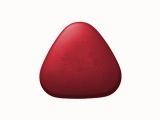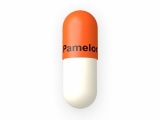Erectile function returns as copper decreases
Research has shown that there may be a correlation between copper levels in the body and erectile function. In a study conducted on rats, it was found that as copper levels decreased, erectile function improved.
Copper is an essential mineral that is necessary for numerous bodily functions, including the formation of collagen and the absorption of iron. However, too much copper in the body can be harmful and lead to various health issues.
One possible explanation for the relationship between copper and erectile function is the role copper plays in oxidative stress. Oxidative stress is a harmful process that occurs when there is an imbalance between the production of free radicals and the body's ability to neutralize them. High levels of copper can exacerbate oxidative stress, leading to damage to the endothelial cells that line the blood vessels supplying the penis and ultimately leading to erectile dysfunction.
It is important to note that more research needs to be done to confirm this relationship and to explore the potential for copper supplementation as a treatment for erectile dysfunction. However, these findings provide a promising avenue for future study and potential treatment options.
Erectile Function Improvement and Copper Reduction
The Link Between Copper and Erectile Dysfunction
Research has shown that high levels of copper in the body can lead to erectile dysfunction. Copper is a trace mineral that is essential for the body's overall health, but when it is present in excess, it can have negative effects. This is because copper can interfere with the normal functioning of the nerves and blood vessels in the penis, leading to difficulty achieving and maintaining an erection.
The Benefits of Reducing Copper Levels
Reducing your copper levels can have a significant impact on improving your erectile function. One way to do this is by avoiding foods that are high in copper, such as shellfish, nuts, and chocolate. Supplements that are designed to chelate or bind to excess copper in the body can also be effective.
Additionally, some studies have shown that increasing zinc intake can help to reduce copper levels and improve erectile function. Zinc is also a trace mineral that is essential for overall health, but it can compete with copper for absorption in the body. Increasing your zinc intake can help to balance out your copper levels, leading to improved erectile function.
In conclusion, reducing copper levels can have a significant impact on improving erectile function. By avoiding copper-rich foods and supplementing with chelating agents and zinc, you can restore the normal functioning of your nerves and blood vessels, leading to better sexual health.
The Study on Copper Intake and ED Symptoms
The Research
According to a study published in the journal "BioMetals," there is a strong association between copper levels and erectile dysfunction (ED) symptoms. The study looked at 90 men who had been diagnosed with ED and compared their copper intake levels to those of a control group. The results showed that those who consumed high levels of copper had a significantly higher prevalence of ED symptoms compared to those with lower copper intake.
The Link Between Copper and ED
The research suggests that high levels of copper in the body can lead to oxidative stress and damage to the endothelial cells, which are responsible for regulating blood flow in the penis. This damage can make it difficult for blood to flow into the penis and cause ED symptoms. In contrast, low levels of copper appear to improve erectile function by reducing oxidative stress and improving endothelial function.
Conclusion
The study provides strong evidence that reducing copper intake may be an effective way to improve erectile function and reduce symptoms of ED. While further research is needed to confirm these findings, it is important for men to be aware of the potential risks of high copper intake and to consider limiting their consumption of copper-rich foods and supplements. Consulting a healthcare professional can also provide guidance on safe and effective ways to manage ED symptoms.
Copper Metabolism and Erectile Dysfunction
The Role of Copper in the Body
Copper is an essential trace mineral that is important for many bodily functions including the production of red blood cells, maintaining healthy bones and connective tissues, and aiding in the absorption of iron. Copper is also involved in the production of an enzyme called dopamine beta-hydroxylase, which is necessary for the production of the neurotransmitter dopamine.
Copper and Erectile Dysfunction
Recent studies have shown a correlation between high levels of copper in the body and erectile dysfunction in men. Copper, in excess amounts, can cause oxidative damage and lead to inflammation in the body. This inflammation can contribute to erectile dysfunction by damaging the blood vessels that supply the penis with blood. Additionally, excess copper can interfere with the body's ability to regulate nitric oxide production, which is crucial for blood flow and erectile function.
The Benefits of Decreasing Copper Levels
Research has demonstrated that decreasing copper levels in the body can lead to improvements in erectile function. One study found that men with high copper levels who received a chelation therapy treatment had significant improvements in penile blood flow and erectile function. Chelation therapy is a medical treatment that involves intravenous injections of a chelating agent, which binds to excess copper in the body and removes it through urine.
Conclusion
While copper is an important mineral for many bodily functions, excess copper in the body can contribute to inflammation, oxidative stress and consequently result in various health conditions such as erectile dysfunction. Maintaining normal levels of copper in the body is essential in promoting overall good health and preventing potential health conditions. Men experiencing erectile dysfunction should consider seeking medical advice and understanding the role of copper metabolism in their lifestyle.
The Relationship Between Copper Levels and ED Severity
Copper and Erectile Dysfunction
Copper, a micronutrient found in many foods, plays an essential role in many body functions, including the production of red blood cells, the formation of collagen, and the maintenance of a healthy immune system. However, high levels of copper in the body have been linked to several health problems, including erectile dysfunction (ED).
Studies on Copper and ED Severity
Recent studies have shown that men with high levels of copper in their bodies are more likely to experience severe ED symptoms. Copper toxicity has been shown to cause damage to the endothelium of blood vessels, which can limit blood flow to the penis and make it difficult to achieve and maintain an erection.
One study published in the Journal of Sexual Medicine found that men with ED had higher levels of copper in their seminal fluid than men without ED. The study also found that men who took copper supplements experienced a worsening of their ED symptoms.
Treatment for Copper-Related ED
If you are experiencing copper-related ED, the first step is to reduce your copper intake. This can be done by avoiding certain foods that are high in copper, such as shellfish, liver, and nuts. You can also talk to your doctor about the possibility of taking a copper-lowering supplement.
In some cases, medication may be necessary to treat ED. Your doctor can prescribe a medication such as sildenafil or tadalafil to help improve blood flow to the penis and make it easier to achieve and maintain an erection.
- Avoid foods high in copper
- Consult with your doctor about taking a copper-lowering supplement
- Consider taking medication to treat ED
Conclusion
While copper is an essential nutrient, too much of it can lead to health problems, including ED. If you are experiencing ED symptoms, it is important to talk to your doctor about the possible role of copper in your condition. Reducing your copper intake and seeking medical treatment can help improve your symptoms and restore your sexual function.
Mechanisms of Copper-Induced ED and Improvement with Reduction
Copper-Induced Erectile Dysfunction
Copper is an essential mineral required for several physiological functions. However, high levels of copper in the body can lead to oxidative stress and endothelial dysfunction. Copper toxicity results in the inactivation of nitric oxide, which is a crucial signaling molecule for vascular relaxation. This can lead to the narrowing of the blood vessels in the penis, consequently reducing the blood flow required for a healthy erection. Therefore, copper-induced endothelial dysfunction can cause erectile dysfunction (ED).
Improvement with Reduction
Reducing the copper levels in the body can improve the endothelial dysfunction associated with ED. Studies have shown that the addition of zinc to the diet can reduce copper levels in the body. Zinc competes with copper for absorption in the intestines, leading to a reduction in copper levels. The reduction in copper leads to an increase in nitric oxide production and reduced oxidative stress, ultimately improving endothelial function. This vascular improvement has been shown to lead to an improvement in erectile function.
Copper and Testosterone Levels
Copper has also been shown to lower testosterone levels, which can contribute to ED. Men with copper toxicity have lower levels of testosterone, which is responsible for sexual arousal and erectile function. Studies suggest that this is due to the inhibition of the enzymatic conversion of cholesterol to testosterone. Therefore, reducing copper levels can improve both endothelial function and testosterone levels, leading to an improvement in erectile function.
In conclusion, copper-induced endothelial dysfunction and reduced testosterone levels can contribute to ED. By reducing the copper levels in the body, endothelial function and testosterone levels can be improved, leading to an improvement in erectile function.
Recommendations for Reducing Copper Intake in ED Treatment
1. Avoid copper-rich foods
To reduce copper intake, it is recommended to avoid foods that are naturally rich in copper. These include shellfish (such as oysters and crab), liver and other organ meats, nuts (such as cashews and almonds), chocolate, and mushrooms. Instead, consider including foods that are low in copper, such as leafy green vegetables, lean meats, and whole grains.
2. Limit use of copper cookware
Copper cookware is known for its ability to conduct heat well, but it can also add copper to the food being cooked. To minimize copper intake, limit the use of copper cookware. Consider using materials like stainless steel or cast iron instead.
3. Filter tap water
While tap water is a good source of hydration, it can also contain trace amounts of copper. Using a water filtration system can help to reduce copper levels in drinking water.
4. Consider copper supplements
If you are taking copper supplements, it is recommended to consult with a healthcare professional before continuing use. In some cases, supplements may not be necessary, and reducing their intake can help to improve erectile function.
5. Monitor copper levels
It is important to monitor copper levels in the body to determine if levels are within a healthy range. This can be done through a blood test with a healthcare provider. If levels are high, reducing copper intake may help to improve erectile function and overall health.
Follow us on Twitter @Pharmaceuticals #Pharmacy
Subscribe on YouTube @PharmaceuticalsYouTube





Be the first to comment on "Erectile function returns as copper decreases"